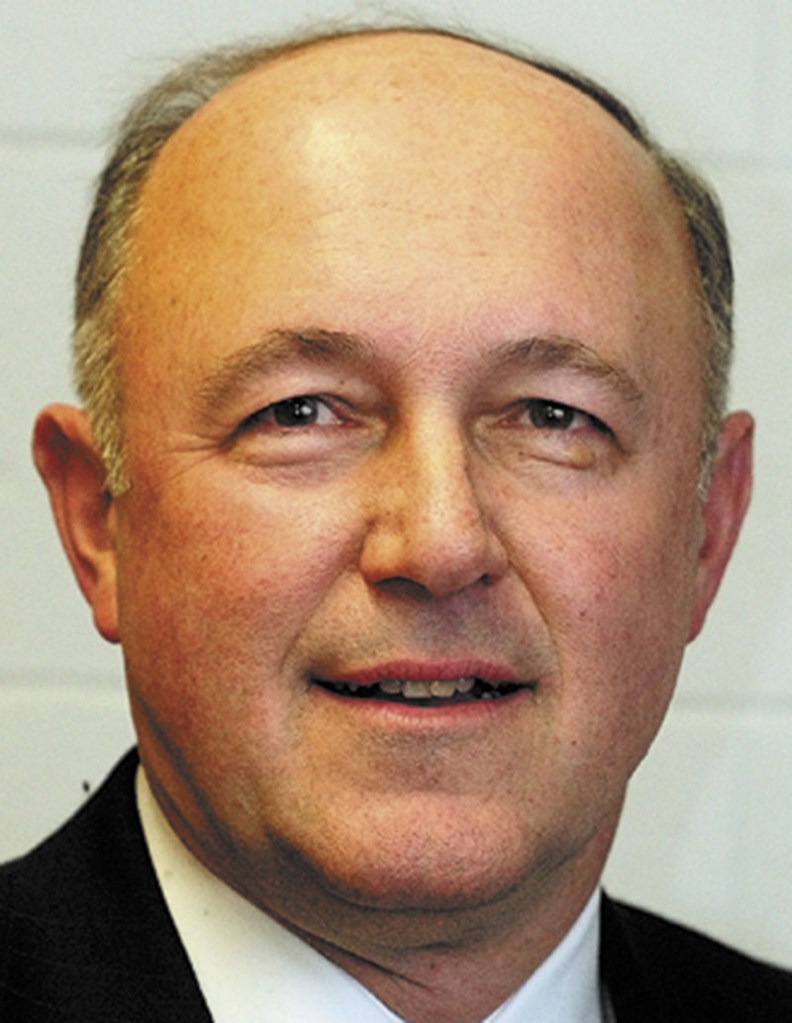AUGUSTA — City councilors voted Thursday to ask the state and a nonprofit organization that houses people with mental illness in Augusta to come up with some money to help offset the city’s cost of providing police, fire and other municipal services to mentally ill clients and residences that house them in Augusta.
Councilors unanimously approved a resolution asking Motivational Services, a nonprofit organization that assists and houses mentally ill clients, some of whom have been found not criminally responsible for violent crimes, to make an annual payment in lieu of taxes to help ease the city’s burden of providing municipal services to the organization’s clients, group homes and other facilities in Augusta.
The same resolution also asks the state Department of Health and Human Services or Motivational Services to restore funding for an intensive case manager who helps Augusta police deal with mentally ill people in distress. The position was recently cut, along with similar positions elsewhere, from the state budget.
City Manager William Bridgeo estimated the position, including benefits, costs about $50,000 a year.
Bridgeo said the goal of the requests is to help the city deal with the burden that comes with being home to the state’s primary mental health treatment facilities and clients who want or need to remain close to them.
“The resolution is right on,” said Councilor Patrick Paradis. “No issue, recently, has stirred up the public as much as this one. So many people call and say the residents of Augusta have so few rights, and the patients have all the rights and people living here bear the burden.”
Councilor Cecil Munson said it is a public safety issue.
In Augusta the intensive case manager position is held by Greg Smith, who has held the job since the position was first created some 10 years ago. Smith usually works nights with the Augusta police, responding to help whenever a call involves someone with a mental illness in distress.
Police Chief Robert Gregoire said Smith is still on the job, likely until the end of the month.
The only resident to speak on the issue Thursday said the position is much needed in Augusta, because many forensic patients — those found not criminally responsible for crimes because of mental illness — remain in the city to be close to treatment and services.
“I do believe the position that was eliminated is necessary, regardless of who pays for it,” said resident Carol Aft. “You have to have an intensive caseworker who is trained specifically for the violent mentally ill.
“If the cost isn’t covered by the state or Motivational Services won’t pay for it, I think the city should consider it. Ultimately, it has got to be done. The forensic patients are here.”
Motivational Services owns eight properties in Augusta, according to city assessing records. Combined, they are appraised by the city at $2.9 million.
But because Motivational Services is a nonprofit organization, it does not pay city property taxes.
Bridgeo suggested a payment of about 25 percent of what Motivational Services’ tax bill would be on its Augusta properties if it weren’t a nonprofit. With the city’s tax rate of $17.55, its taxes would total about $52,000 a year; 25 percent of that would be $13,000 per year.
Bridgeo said he and other city officials will meet with Richard Weiss, executive director of Motivational Services, who did not attend Thursday night’s meeting, in the next couple of weeks to discuss issues including the intensive case manager position and how it could be funded.
Thursday’s council vote on the resolution came a week after a meeting between city and mental health officials over a contentious plan to close three group homes on the grounds of the former Augusta Mental Health Institute, now the Riverview Psychiatric Center, and move 16 patients into group homes in the city at 22-24 Green St. and 14 Glenridge Drive
Paradis, a former state legislator, suggested state legislators should look into creating a “guilty but insane” verdict in the justice system, in which someone who might now be found not criminally responsible for a violent crime would, if he underwent treatment and was deemed able to be released from mental health care, would be released not to the public, but to prison, where he would serve time for their crime.
“If it’s found that they are well enough to leave the (mental health) facility, they don’t leave the facility, they leave to go back to prison,” Paradis said. “I think the Legislature needs to engage in that discussion, because the pendulum has swung too far for the rights of the patients, versus the rights of society.”
Councilors also were upset to learn about the state’s plan to close the three halfway houses on the state campus in a Kennebec Journal story, not from the state.
The resolution approved by councilors Thursday also seeks to address that lack of notification, stating the City Council expresses “its disappointment and concern” at the lack of communication.
Copy the Story Link
Send questions/comments to the editors.




Success. Please wait for the page to reload. If the page does not reload within 5 seconds, please refresh the page.
Enter your email and password to access comments.
Hi, to comment on stories you must . This profile is in addition to your subscription and website login.
Already have a commenting profile? .
Invalid username/password.
Please check your email to confirm and complete your registration.
Only subscribers are eligible to post comments. Please subscribe or login first for digital access. Here’s why.
Use the form below to reset your password. When you've submitted your account email, we will send an email with a reset code.